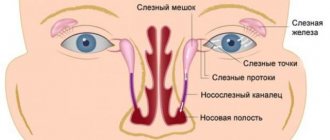A mouth full of stones, sand, chestnuts. There is no need to wash the floors anymore, nor do you need to wash the windows. The baby puts everything in his mouth, and this habit drives everyone crazy.
Text: Ekaterina Morozova
Expert: Natalya Naumova, child psychologist, child neuropsychologist, family psychotherapist.
Normally, babies put everything in their mouth until they are 1.5-3 years old. Although everything is individual, and boundaries can blur. This craving is understandable. During the prenatal period, the child received all the necessary substances through the umbilical cord. After birth, food begins to come through the mouth and it becomes vitally important to master the oral method of receiving it. So this part of the body at this stage of the baby’s life really acquires a very special status. And this is a biologically based change. However, not only food comes through the mouth. Almost all the pleasures that a baby can get for himself are associated with sucking. And this is the satisfaction of hunger and consolation in sadness. After all, when he needs to calm down, he also needs the breast. For this reason, the child associates the mouth with positive emotions and, among other things, he really likes putting everything into his mouth. The same cannot be said about parents.
Sense organ
In addition to its main purpose, the mouth, in a certain sense, turns into another and very important organ of touch. With its help, the baby gets a taste of this world. Literally. Using the tongue and lips, the child learns about the properties of objects, and experiences both positive and negative emotions depending on their taste and texture. Relationships with the mother and the ability to meet the child’s needs at this stage form basic trust or distrust in the world and in people.
CHILDREN START PULLING EVERYTHING THAT JUST FALLS INTO THEIR MOUTH AT 5-6 MONTHS. SO THEY GET TO KNOW THE OBJECT WORLD, WHICH WILL EVENTUALLY CONTRIBUTE TO THE BEGINNING OF INDEPENDENCE.
When should you make an appointment with a pediatrician?
You have already learned about the harmless and serious causes of children's yawning and are sure that your one-year-old child yawns often not because of fatigue and lack of oxygen. In this case, you should consult a specialist:
- The child yawns very often, is lethargic, and too sleepy. This may indicate migraines, chronic fatigue, or emotional burnout.
- Fainting.
- When talking with a neurologist, it is better to mention frequent bouts of yawning.
- The child yawns several times per minute.
- The first “bells” of epilepsy are observed. If your baby also yawns, consult a doctor immediately.
Also, frequent yawning can signal the following diseases or pathologies:
- High intracranial pressure.
- Hydrocephalus.
- VSD (vegetative-vascular dystonia).
- Multiple sclerosis (this disease also occurs in children).
Useful workouts
For the first two months, the child tastes everything, directly moving his mouth to the object of study, and after the third month of life and up to 1.5-3 years, his hand brings everything to his mouth. At this stage, both gross and fine motor skills are actively developing. To bring an object to your mouth, you need to approach it (crawl, approach, pull yourself up) and grab it tightly, then bring it to your mouth. This “bad” habit also affects the development of speech. When a baby puts everything into his mouth, he trains the muscles of the tongue, lips, lower jaw, and soft palate, which are involved in articulatory activity.
Early signs and causes of abnormal facial growth
Some bad habits (thumb sucking) or improperly formed functions (swallowing, chewing) change the way muscles work, thereby contributing to changes in facial features.
This issue is most relevant for children with neurological problems, when it is quite difficult to form the desired function for a number of reasons. Facial changes are also common in children with adenoids. In this article we will look at the main mechanisms and consequences of facial dysfunction, as well as possible solutions.
Main problems and their solutions
Mouth breathing or the habit of keeping your mouth open
It is absolutely clear that this is the most common cause of disproportionate jaw growth. An open mouth leads to the growth of the facial bones downward in length, to the point that the child can no longer even close his lips. This condition can only be corrected with surgery in the future. At the RuDenta kids clinic, we use Myobrace along with special exercises to help the baby overcome this habit. Encourage your child to keep his mouth closed and breathe through his nose from a young age.
Poor swallowing or tongue thrusting habit
Impaired muscle functions in the oral cavity, such as improper tongue position, abnormal swallowing, can impair the growth of the face and jaws. This will lead to crowded teeth and an abnormal facial profile. To restore correct functions, various children's orthodontic devices are used: trainers, plates, myobraces and a set of special exercises.
Sucking habits
Bad sucking habits and swallowing with the tongue hanging out can lead to the appearance of a gap between the upper and lower dentition, and the child will not be able to bite off with his front teeth.
The lips, tongue, cheeks and the rest of the teeth all serve to determine the position of each tooth in the right place in the mouth. Any disruption to their work will be reflected in the unevenness of the child’s dentition and disruption of the shape of the jaws. Too frequent and prolonged thumb or pacifier sucking distorts the direction of tooth growth and increases the strength of those muscle groups that in the future will lead to crowding of teeth and change the shape of the jaws.
Crowded teeth
Normally, by the age of five, a child should have gaps between his baby teeth. This prepares space for permanent teeth, which begin to emerge from the age of six and are significantly larger in size than their predecessors. Therefore, if there is not enough space, they will grow unevenly.
If the lower front teeth are tightly positioned at the age of 6 years, the watch-and-wait attitude cannot be maintained. We do not seek to extract teeth in children to straighten narrow dentition. It is much easier to widen the jaw at a younger age to provide the necessary space in the future.
Unattractive eyes
With constant mouth breathing, the upper jaw can grow downward and elongate the face. The eyes will appear protruding. The outer corner of the eyelid will droop, giving the eyes a tired appearance, revealing more of the white surface of the eyeball. The lower eyelid will form a prominent fold as it meets the cheek.
Speech
When pronouncing most sounds, the tongue should be pressed against the roof of the mouth. If a child places it between the teeth in front or from the side, this leads to their displacement, and a gap may form between the upper and lower dentition even when the teeth are closed.
Where should the teeth be located?
The position of the upper front teeth can be measured from the tip of the nose to the upper edge of the central incisors. Ideally, it is 28 mm at age 5 and increases by 1 mm each year until it is 36 mm in girls and 38 mm in boys. If this distance is increased by more than 5 mm, this indicates growth disproportion. If it is more than 8 mm, then the child requires immediate examination by an orthodontist and correction of severe malocclusion.
Adenoids and tonsils
Adenoids and tonsils can cause breathing problems in a child. Their removal often leads to a quick restoration of nasal breathing and facial appearance. If the habit of breathing through the mouth remains even after eliminating the obstruction of the respiratory tract, then children's orthodontic devices (myobraces, trainers) and facial gymnastics can help form the correct attitudes. However, treatment can be quite lengthy and cause relapses. In such cases, improvement can be achieved by expanding the upper dentition with plates.
Oral stage
Sigmund Freud, the founder of psychoanalysis, identified 5 stages of psychosexual personality development more than a century ago, however, some of his postulates are still relevant today. The first stage is the oral stage. These features should also be taken into account when selecting educational tactics to control and supervise the “bad habit.”
0 months – 1.5 years
Actually, the oral stage according to Freud covers the age from birth to one and a half years. According to modern concepts, this includes the period of infancy (from 0 to one year) and early childhood of the child (from 1 to 3 years). Both stages are a time of active sensory development. Now all senses are being trained: vision, hearing, smell, taste, touch.
At the same time, the baby urgently needs close and sincere emotional contact with a significant adult. Most often with mom, and if she is absent for some reason, then with a person standing in for her - dad, grandmother or guardian. During this period, it is very important to kiss, hug, and stroke the child. If mother and baby do not develop a close bond, he may begin to lag behind in development.
At this stage, the basic attitudes are laid: dependence/independence, trust/distrust in relationships with people, a sense of support/confidence in the impossibility of getting help from other people. That is, the foundation of trust in the world and in people is being laid. At this stage, the child sucks his mother's breast, feels her tenderness and love towards him.
THE DIMLIER DOES NOT PLAY ANY IMPORTANT ROLE AT THE ORAL STAGE OF DEVELOPMENT. IT DOES NOT HELP OR HINDER THE CHILD: HE CAN ALWAYS GET RID OF IT AND TAKE SOMETHING ELSE INTO HIS MOUTH OR PRACTICE SPEECH. THE DACTOR SIMPLY CALMES A RESTLESS BABY AND HELPES CHILDREN WITH EXCESSIVE SUCKING REFLEX.
If contact with the mother is weak, the baby may begin to suck his finger instead of the breast. There is only one goal: to reduce the stress that arises due to the lack of maternal care. To avoid such problems, many psychologists recommend long-term breastfeeding on demand.
And at this stage it is important to avoid extremes. Hypo- or overprotection on the part of the mother negatively affects the psycho-emotional development of the child. In the future, he may become, respectively, overly dependent or, conversely, overly independent (with no need for close, trusting relationships), trusting or distrustful.
Come on, bite!
From 6 months, the second phase of the oral stage begins - oral-sadistic. During this period, the baby's first teeth erupt. Now chewing and biting becomes a response to frustration - a feeling of disappointment, sadness, sadness, which is accompanied by anxiety. Most often, the baby is very upset by the mother’s long absence or denial of pleasure. At this age, the child, not seeing his mother, suffers as if he had lost her forever. Your task is to help the child understand that mother does not disappear, she always returns. A simple game of peek-a-boo is ideal for this. You cover your face with your hands, then remove them and say, “Peek-a-boo.” Then leave the room, continuing to talk with the child, so that he can understand that even if his mother is not visible, she is still there and will soon return to him.
AT THIS AGE CHILDREN OFTEN BITE MOM'S BREASTS. IF THIS HAPPENED, BE ENDORSE. REMEMBER THAT A CHILD IS INVOLVINGLY CAUSING PAIN TO YOU, BUT YOUR REACTION WILL HAVE FAR-REACHING CONSEQUENCES.
If you respond aggressively, then in the future the baby will bite if dissatisfied. It is more correct to remove the child for a few seconds, make a sad face and say: “It hurts me,” but only without a note of accusation in the voice. Then you need to wait a few seconds, take the child in your arms and talk to him tenderly. This will form the correct behavioral pattern of kindness and forgiveness.
It is very important that during this period the separation from your mother proceeds smoothly. If you need to go to work, try to make sure that your baby gets used to being away from you for a long time gradually. And keep in mind: if the failure occurs in the second oral stage, the person grows up to be a great debater, full of sarcasm, with a pessimistic outlook on life and a cynical attitude towards the world, with the need to dominate and exploit other people. Residual oral behavior is expressed in smoking, unbridled appetite, and the habit of biting pens or nails. A person with an oral character type is infantile and is not able to save his savings.
The child does not know how to take into account the interests of others
“Now, when you stop giving in to despair,” I said, “you and I will discuss one quite strategic thing regarding Misha, then you will try to implement it, and if nothing works, you will go for a consultation with a psychiatrist.” Agreed?
- Yes Yes!
- Misha, please list what the boy you tried to make friends with in class likes. Food? Games? Books? Movies?
“I don’t know,” Misha looked at me in surprise. - I didn't ask.
“Tell me, please,” I turned to the mother, “do you always listen to your child?”
- Certainly. In any case, I try. I read in books about respect for a child’s personality and I still remember how my mother never listened to me. She had three of us... And so I decided...
— What you (and many other parents) decided is a double-edged sword. A child, his developing brain, certainly needs a listener, an interlocutor. And he certainly needs respect or at least some patience for his thoughts, feelings, findings and position.
But there is another important educational program in the development of a child. If you want others to listen to you, you must actively learn to be interesting to them. That is, change your actions, behavior, stories to suit their needs. And even before that, take an interest in them.
I myself have been a storyteller since early childhood, believe me, I know perfectly well what I’m talking about. Your Misha does not know how to hear, see, or recognize other people. He's simply not interested in them.
- So he's sick? — the mother raised her eyebrow tragically.
“Let’s start by assuming that I’m healthy,” I suggested. “There are a lot of children like this now.” Their relatives develop them from birth, respect their opinions and desires, and listen carefully. Other adults and older children treat them condescendingly, sometimes at first they even play with them, like talking toys. Children get used to this position of the world and grow up confident that it will always be this way. When they find themselves in a group of peers, problems inevitably arise.
In addition, there are children (and adults) who are almost naturally inclined to reasoning monologues, as if thinking. If you don’t stop them, they can talk more or less coherently for hours: about dinosaurs, about their lives, about politics, about human relations, about morality...
It's possible, but be careful
It is simply impossible to underestimate the importance of the oral stage. Strict prohibitions will hinder the baby’s development. It is important not to prohibit and scold, but to be there and help the child get acquainted with the world around him in the safest way.
- First of all, it is necessary to ensure maximum safety for the baby. Be sure to remove all piercing and cutting objects, household chemicals and easily breakable objects from its access area. If you have older children, make sure that your child does not pick up small parts from construction sets or toys while visiting his brother or sister.
- If a child puts a dirty, dangerous object in his mouth, he must be stopped. If possible, we stop calmly. We speak briefly and clearly: “This is not edible,” “We don’t eat this,” “This is dangerous.”
- It would be good if you could explain how these inedible items are usually handled. Of course, after you take them out of the baby's mouth.
- Use simple and clear but common words. Simplified versions like “It’s kaka” or “Ugh!” impoverish speech.
- When your baby starts teething, offer an alternative (teether, pacifier, dryer...)
- Provide your child with sensory information in a safe way. Offer sensory development games.
Even if a child breaks a rule, it is very important not to subject him to psychological and physical aggression. The child acted incorrectly, we do not approve of the action, but we love and forgive the child.
Problems with the central nervous system
Such a pathology can be determined if, in addition to an open mouth, the child also has excessive salivation or the tip of the tongue constantly sticks out. In this case, parents should not delay time and show the baby to the doctor, since these symptoms may indicate a serious pathology of the central nervous system.
In the best case, if the child constantly opens his mouth, this behavior occurs due to normal hypertonicity. Hypertonicity is accompanied by sleep disturbances; the baby is often irritable, capricious, and crying.











